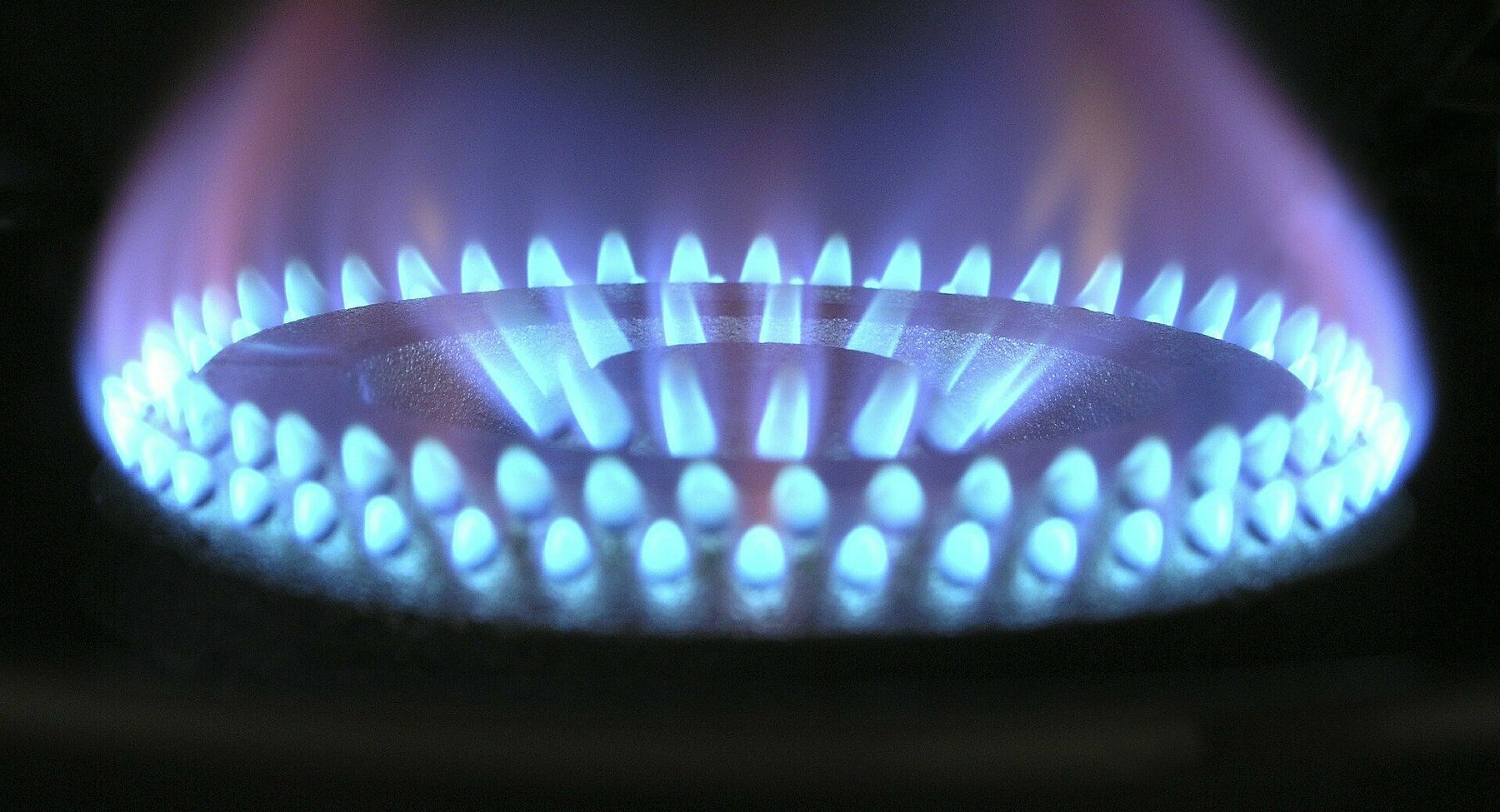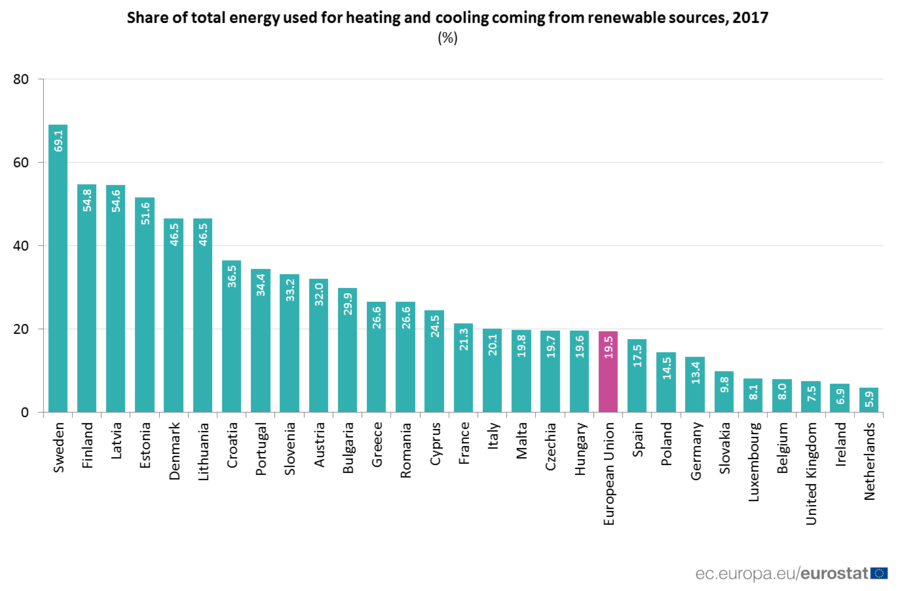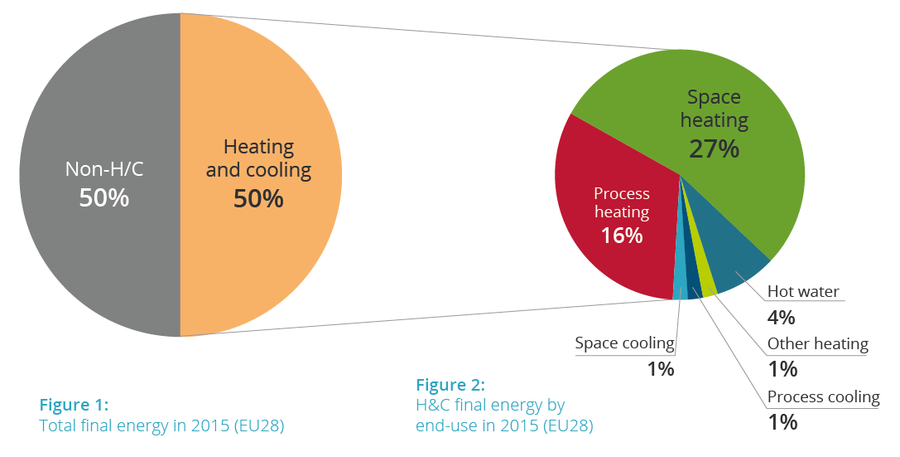

Heating and cooling in buildings and industry account for half of the energy consumed in the EU. 2018 Eurostat data show that 75% of heating and cooling were based on fossil fuels while only 19% were generated from RES. At household level, heating and hot water alone account for 79% of total final energy consumption. At industry level, space and industrial process heating account for 70,6% of energy consumption. While cooling represents a small share, it is increasing given climate change and related extreme weather events.
In order to reach its climate and energy goals, the EU needs to reduce to zero its consumption and use of fossil fuels in the heating and cooling sectors. Controlling energy consumption, reducing energy waste, using intelligent thermostats, renovating and upgrading buildings with the most energy-efficient technologies, as well as improving district heating are all key measures for decarbonizing these sectors by 2050.
Sources:
European Commission https://ec.europa.eu/energy/en/topics/energy-efficiency/heating-and-cooling
Fraunhofer and alia, 2016. Mapping and Analysis of the Current and Future (2020-2030) heating/cooling fuel deployment (fossils/renewables): https://ec.europa.eu/energy/sites/ener/files/documents/Report%20WP1.pdf
European Commission Infographic: 10 things you didn't know about Heating & Cooling (2016)


H &C final energy by end-use from total final energy in 2015
Source: Heat Roadmap Europe (1017). Heating and Cooling facts and figures. The transformation towards a low-carbon Heating & Cooling sector. Available at: https://heatroadmap.eu/wp-content/uploads/2019/03/Brochure_Heating-and-Cooling_web.pdf